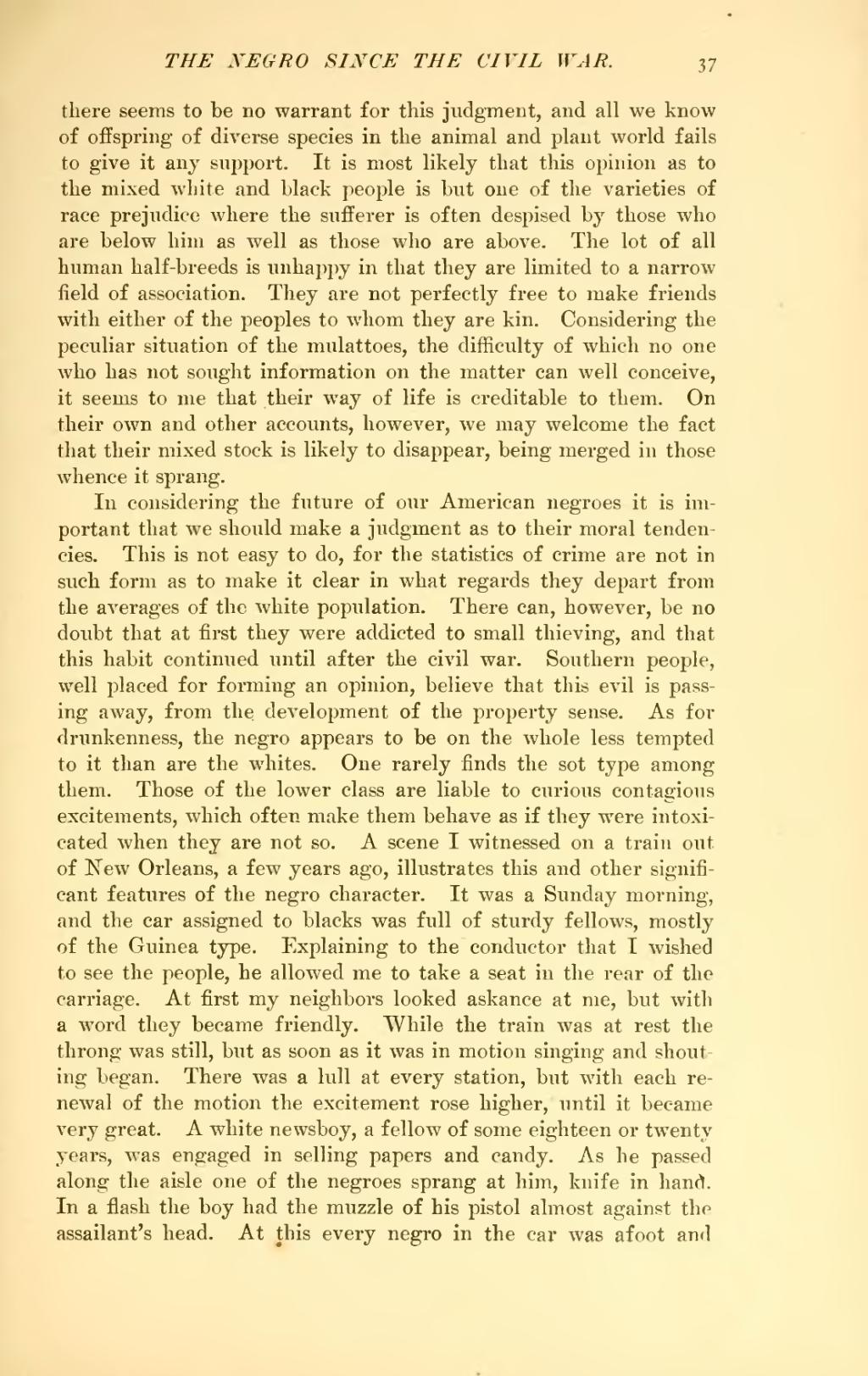there seems to be no warrant for this judgment, and all we know of offspring of diverse species in the animal and plant world fails to give it any support. It is most likely that this opinion as to the mixed white and black people is but one of the varieties of race prejudice where the sufferer is often despised by those who are below him as well as those who are above. The lot of all human half-breeds is unhappy in that they are limited to a narrow field of association. They are not perfectly free to make friends with either of the peoples to whom they are kin. Considering the peculiar situation of the mulattoes, the difficulty of which no one who has not sought information on the matter can well conceive, it seems to me that their way of life is creditable to them. On their own and other accounts, however, we may welcome the fact that their mixed stock is likely to disappear, being merged in those whence it sprang.
In considering the future of our American negroes it is important that we should make a judgment as to their moral tendencies. This is not easy to do, for the statistics of crime are not in such form as to make it clear in what regards they depart from the averages of the white population. There can, however, be no doubt that at first they were addicted to small thieving, and that this habit continued until after the civil war. Southern people, well placed for forming an opinion, believe that this evil is passing away, from the development of the property sense. As for drunkenness, the negro appears to be on the whole less tempted to it than are the whites. One rarely finds the sot type among them. Those of the lower class are liable to curious contagious excitements, which often make them behave as if they were intoxicated when they are not so. A scene I witnessed on a train out of New Orleans, a few years ago, illustrates this and other significant features of the negro character. It was a Sunday morning, and the car assigned to blacks was full of sturdy fellows, mostly of the Guinea type. Explaining to the conductor that I wished to see the people, he allowed me to take a seat in the rear of the carriage. At first my neighbors looked askance at me, but with a word they became friendly. While the train was at rest the throng was still, but as soon as it was in motion singing and shouting began. There was a lull at every station, but with each renewal of the motion the excitement rose higher, until it became very great. A white newsboy, a fellow of some eighteen or twenty years, was engaged in selling papers and candy. As he passed along the aisle one of the negroes sprang at him, knife in hand. In a flash the boy had the muzzle of his pistol almost against the assailant's head. At this every negro in the car was afoot and

